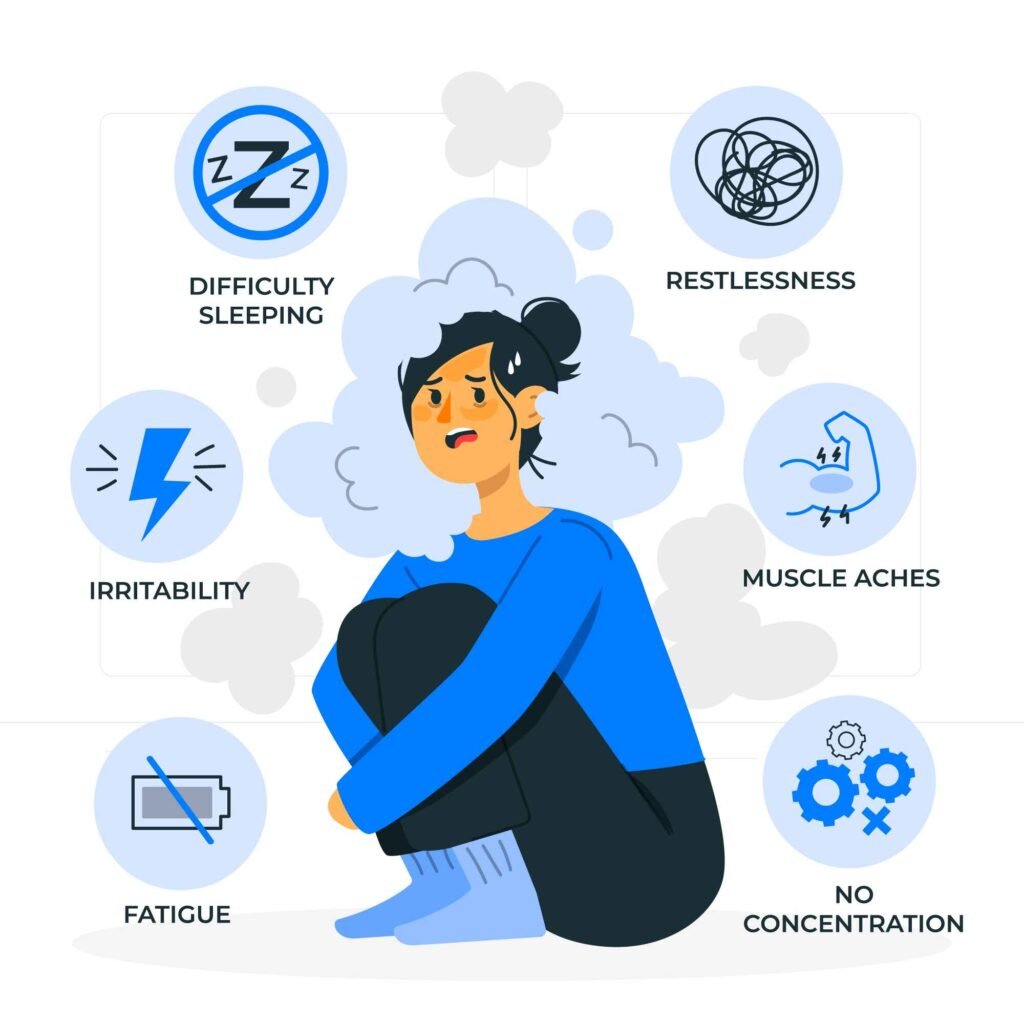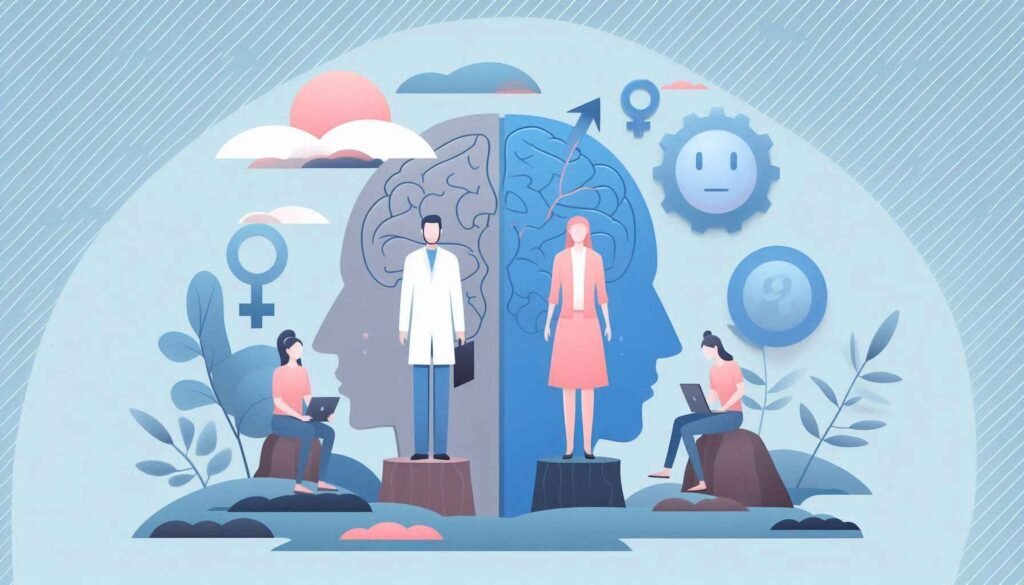
Choosing the right therapist is a crucial step in your mental health journey. Whether you’re dealing with anxiety, stress, trauma, or seeking personal growth, finding a professional who understands and supports your needs is key to making meaningful progress. But with so many options out there, it can be overwhelming to decide whom to trust with your mental health. This guide will walk you through the most important factors to consider when selecting a therapist, helping you make an informed decision that feels right for you.
1. Understanding Your Needs: Defining Your Goals for Therapy
Before diving into the sea of therapy options, take a moment to reflect on what you need. Are you looking for help with anxiety or depression? Are you dealing with past trauma or navigating a challenging relationship? Getting clear on your goals can significantly narrow your options.
Think about what you want to achieve through therapy. Do you need tools to manage stress, a safe space to explore emotions, or specific treatment for a mental health disorder? When you have clarity on your goals, you can search for a therapist with the expertise that aligns with those needs.
Knowing whether you prefer a structured, goal-oriented approach like Cognitive Behavioral Therapy (CBT) or a more open-ended, exploratory style, such as psychodynamic therapy, can also be helpful. Different types of therapy address different issues in unique ways, so having a general idea of what you’re looking for will guide your selection process.
2. Types of Therapies and Specializations: Choosing the Right Fit
Therapists often specialize in specific methods of treatment, each tailored to different mental health issues. Here are some common forms of therapy and their focus:
- Cognitive Behavioral Therapy (CBT): Ideal for anxiety, depression, and managing negative thought patterns. It’s structured and focuses on providing practical tools to change behavior.
- Dialectical Behavior Therapy (DBT): Effective for emotional regulation and coping with intense feelings. Often used for individuals with borderline personality disorder.
- Somatic Experiencing: Works well for trauma recovery by focusing on body awareness and the physical experience of emotions.
- Family or Couples Therapy: If relationship dynamics are your primary concern, seeking a therapist who specializes in relationship or family issues can be beneficial.
Many therapists use an eclectic approach, combining techniques from different modalities based on what suits you best. Make sure to ask potential therapists about the type of therapy they offer and why it might work for your particular situation.
3. Credentials and Experience: Why They Matter
The first step in evaluating a potential therapist is ensuring they have the proper credentials. A licensed therapist has completed specific training, passed licensing exams, and adheres to ethical standards set by a licensing board. Common credentials include:
- LCSW (Licensed Clinical Social Worker)
- LMFT (Licensed Marriage and Family Therapist)
- LPC (Licensed Professional Counselor)
- PsyD (Doctor of Psychology)
- PhD (Doctor of Philosophy in Psychology)
While credentials indicate that a therapist is trained and competent, experience in dealing with issues like yours is just as crucial. If you’re struggling with trauma, for instance, it’s beneficial to work with someone who has extensive experience in trauma therapy. During an initial consultation, don’t hesitate to ask about their experience with similar cases.
4. Practical Considerations: Accessibility, Affordability, and Convenience
Accessibility is a major factor in ensuring you can stick with therapy. Think about whether you prefer in-person or virtual sessions. Online therapy offers flexibility, especially for those with tight schedules or limited transportation options. However, some people prefer the intimacy of face-to-face sessions.
Affordability is another important aspect. Verify if the therapist takes your insurance or offers a sliding scale for payments based on income. Therapy can be a significant financial commitment, so understanding the costs upfront will help you avoid stress later on.
Finally, consider logistics like location and availability. If you opt for in-person therapy, make sure the office is conveniently located. Scheduling also matters—do they offer evening or weekend appointments that fit into your busy life?
5. Evaluating Rapport: The Importance of the Therapist-Client Relationship
Rapport is one of the most significant indicators of a successful therapy outcome. You need to feel safe, understood, and respected by your therapist. During your first session, ask yourself:
- Do I feel comfortable opening up to this person?
- Does the therapist seem genuinely empathetic and non-judgmental?
- Do they actively listen and ask insightful questions?
A good therapist-client relationship fosters trust and makes it easier for you to engage fully in the therapeutic process. Research has shown that the quality of this relationship can be as impactful as the specific techniques used in therapy. Don’t be afraid to “shop around” until you find someone with whom you feel a strong connection.
6. Questions to Ask a Potential Therapist: Getting the Information You Need
It’s okay—and encouraged—to ask questions when meeting a potential therapist. Some questions to consider include:
- What is your approach to therapy, and how do you tailor it to individual clients?
- How do you measure progress in therapy?
- Have you worked with individuals who have similar issues to mine?
- What are your fees, and do you offer a sliding scale?
- What happens if the current approach doesn’t work?
These questions will give you insight into their methods, level of expertise, and flexibility. It’s also a way to determine if their values and style align with what you’re looking for.
7. Values, Culture, and Personality: Finding the Right Fit
It can be beneficial to work with a therapist who understands your cultural background, values, or unique life experiences. While therapists are trained to maintain neutrality, shared experiences can sometimes foster a deeper connection. Whether you value humor, a straightforward approach, or a soft, nurturing demeanor, make sure the therapist’s personality resonates with you.
Many therapists have websites or profiles where they discuss their approach and values. Reading through these can give you a feel for whether they might be a good fit before you meet.
8. Common Challenges in Therapy: Knowing What to Expect
Therapy is not always easy. Sometimes, the process can bring difficult emotions to the surface, and you might feel worse before you feel better. This is a natural part of the healing journey. Resistance and feelings of discomfort can indicate that you are making progress. Discuss these feelings openly with your therapist—they’re trained to help you navigate through the tough parts.
However, if you consistently feel misunderstood or uncomfortable after several sessions, it may be a sign that this therapist is not the right match. Remember, it’s okay to switch therapists if you feel your needs aren’t being met.
9. Accountability and Progress: Setting Goals Together
Successful therapy involves collaboration. You and your therapist should work together to set clear goals and track your progress. Accountability is key—you might be asked to complete “homework” like journaling, practicing new coping strategies, or challenging certain thought patterns between sessions. This active participation helps reinforce the skills you’re learning in therapy.
A good therapist will also encourage you to take ownership of your progress. Over time, the goal is for you to learn how to apply therapeutic tools independently, reducing reliance on the therapist.
10. Knowing When to End Therapy: Transitioning to Independence
Therapy isn’t meant to last forever. The ultimate goal is for you to develop the skills and insights needed to navigate challenges independently. Signs that you might be ready to conclude therapy include:
- You’ve achieved the goals you set at the beginning.
- You feel more confident in managing your symptoms.
- You’re experiencing fewer crises or emotional upheavals.
Ending therapy can be a powerful step in affirming your growth. It’s a decision that should be made collaboratively, with a plan in place for how to maintain your progress after sessions end.
Conclusion: Trust the Process and Trust Yourself
Choosing the right therapist is a deeply personal decision. It requires reflection, research, and sometimes a bit of trial and error. The right therapist will be someone who makes you feel safe, understood, and empowered to make changes. Trust your instincts, ask the right questions, and be open to the process of finding someone who is genuinely the best fit for your needs.
Therapy is a commitment to yourself and your well-being. With the right support, you can navigate life’s challenges, heal from past wounds, and build a healthier, more fulfilling future.



